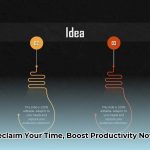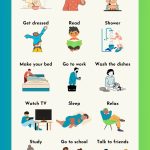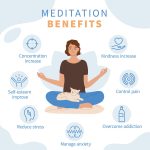Ever feel like you’re missing something? Like there’s more to life than what you’re currently experiencing? You’re not alone. Millions are searching for ways to grow and improve, and the internet is bursting with personal growth blogs promising just that. But with so many out there, how do you find the ones that actually work? This article is your guide. We’ll dive into some of the best personal growth blogs, comparing their approaches and helping you choose the perfect one for *your* goals. Whether you want to boost your productivity, conquer your finances, build better relationships, or simply find more inner peace, we’ll show you how to use these blogs to make real, lasting changes in your life. For further assistance, check out these [helpful worksheets](https://www.mearnes.com/personal-growth-worksheets). Let’s unlock your potential together.
Personal Growth Blogs: Your 2024 Guide to a Better You
Ready to level up your life? The internet’s bursting with personal growth blogs, each promising to help you become the best version of yourself. But with so many choices, how do you find the ones that truly work for you? This guide cuts through the clutter, offering a hand-picked selection and practical steps to make real progress. Find valuable resources and strategies to improve your overall sense of well-being through effective personal growth.
Navigating the World of Personal Growth Blogs
Think of the internet as a giant self-improvement buffet. You’ve got blogs focused on calming your mind through mindfulness, blogs packed with productivity hacks to conquer your to-do list, blogs teaching you the secrets to smart money management, and so many more! It can feel overwhelming, right?
To help you navigate this exciting (and sometimes confusing) landscape, we’ve organized popular blogs into helpful categories.
| Blog Category | What They Focus On | Example Blog Styles |
|---|---|---|
| Mindfulness & Wellbeing | Stress relief, mental clarity, finding inner peace | Blogs with guided meditations, gentle advice, calming visuals, personal anecdotes, and practical mindfulness exercises. |
| Productivity & Habits | Mastering time, achieving goals, building good habits | Blogs offering practical tips, step-by-step guides, habit trackers, time management techniques, and strategies for overcoming procrastination. |
| Finance & Wealth Building | Smart budgeting, investing, reaching financial goals | Blogs covering everything from saving to investing, often with personalized advice, debt management strategies, and tips for increasing income. |
| Career Development | Finding your dream job, boosting skills, career growth | Blogs offering job search strategies, skill-building resources, career advice, tips for networking, and strategies for professional development. |
| Relationships | Communication, resolving conflicts, building strong bonds | Blogs with practical advice, relationship exercises, expert insights, communication techniques, and tips for building stronger and healthier relationships. |
Actionable Steps: Turning Blog Knowledge into Real-Life Change
Reading inspiring blogs is great, but the real magic happens when you put what you learn into action. Here’s a straightforward plan to make that happen:
- Define Your Goals: What areas of your life need a boost? Instead of tackling everything at once, pick one or two key areas to focus on. Maybe it’s improving your sleep, managing stress better, or getting a handle on your finances. Be specific! What does “better sleep” actually look like? Aim for 7-8 hours of uninterrupted sleep per night.
- Choose Your Blogs Wisely: Select two or three blogs that align perfectly with your chosen goals. Quality over quantity is key here. Don’t feel pressured to follow every blog you see. Focus on finding a few reliable sources that resonate with you. Look for blogs with a proven track record and a strong reputation.
- Take Action, One Step at a Time: Don’t just passively scroll through articles. Each week, choose one specific tip or strategy from your chosen blogs and commit to trying it out. Start small; even tiny changes can make a big difference. Begin with one new habit per week.
- Track Your Progress: Keep a journal or use a handy app to monitor your efforts. Notice what’s working well and what needs tweaking. This is about self-discovery, not perfection! Use a habit tracker app or a simple spreadsheet to log your progress daily.
- Join the Conversation: Many blogs have active communities. Joining in discussions and sharing your experiences can provide valuable support, encouragement, and accountability. Engage in the comments sections or join related online forums.
- Embrace Flexibility: Personal growth is a journey, not a race. There will be ups and downs. Be kind to yourself, adjust your approach as needed, and celebrate your wins along the way. Don’t be afraid to experiment and modify strategies to fit your unique needs and circumstances.
A Closer Look: Blog Strengths and Weaknesses
While many personal growth blogs aim to help you thrive, their approaches differ. Let’s examine some common categories and their pros and cons.
Mindfulness Blogs:
- Pros: These blogs often provide calming techniques for stress reduction, help you improve emotional regulation, and boost self-awareness. Many offer guided meditations and practical exercises. They promote a gentler, more holistic approach to well-being and encourage self-compassion.
- Cons: If you’re looking for quick fixes and rigid schedules, these blogs might not be the perfect fit. The effectiveness of mindfulness practices can vary from person to person, and it requires consistent effort and patience. Some may find the lack of concrete, measurable results discouraging.
Productivity Blogs:
- Pros: These blogs are treasure troves of practical strategies for managing your time, setting achievable goals, and building positive habits. Many are based on solid scientific research in behavior and psychology, making their advice more reliable and effective.
- Cons: If you’re not careful, the sheer number of tips and techniques can feel overwhelming. Some may focus heavily on productivity strategies without addressing the emotional side of things, leading to burnout if not balanced with self-care. It is important to remember that productivity isn’t everything.
Financial Blogs:
- Pros: These blogs can teach you valuable skills, regardless of your income level. You’ll likely learn how to create effective budgets, make smart investments, and achieve your financial milestones. They can provide a solid foundation for your financial journey and empower you to take control of your finances.
- Cons: Always approach financial advice with caution. It’s crucial to consider your unique financial situation and, if needed, consult with a qualified financial advisor before making significant decisions. Investing wisely can significantly improve one’s personal and financial status, but it also carries inherent risks. Be sure to do your research.
Making the Most of Your Personal Growth Journey
Remember, these blogs are valuable tools—they’re your guides on a personal exploration. Don’t just passively receive information. Actively reflect on your experiences, adapt your strategies, and celebrate your progress along the way. Be patient and compassionate with yourself, and remember: your journey is unique and special. Embrace it!
How to Choose the Best Personal Development Blog for My Specific Needs
Key Takeaways:
- The personal development blogosphere is vast and varied. Finding the right blog depends entirely on your individual goals and learning style.
- Popular blogs like Zen Habits, Tiny Buddha, and Impact Theory consistently receive high praise for blending practical advice with inspirational narratives.
- Successful blogs often combine actionable strategies with relatable stories, creating a more engaging and effective learning experience.
Finding Your Perfect Personal Growth Guide
So, you’re ready to embark on a journey of self-improvement. But with countless personal development blogs vying for your attention, how to choose the best personal development blog for my specific needs can feel overwhelming. This guide will help you navigate this digital landscape and find the perfect fit. Employ a personal development plan to help in your road to self-improvement.
Categorizing Blogs by Theme
First, identify your primary goals. Are you seeking enhanced productivity? Do you crave inner peace through mindfulness? Or are you aiming for financial freedom?
- Productivity: Blogs focusing on productivity often offer time management techniques, goal-setting strategies, and efficiency hacks. Look for clear, actionable steps and practical tools. Boost your productivity with expert advice and practical strategies found in top blogs.
- Mindfulness: Mindfulness blogs emphasize present moment awareness, stress reduction, and emotional regulation. Expect guided meditations, breathing exercises, and journaling prompts. Look for blogs that offer a balanced approach, combining spiritual practices with practical advice.
- Financial Well-being: Blogs in this category provide financial literacy education, budgeting strategies, and investment advice. Look for credible sources and evidence-based strategies, and be wary of get-rich-quick schemes.
- Relationships: Blogs on relationships offer advice on communication skills, conflict resolution, and building stronger connections. Note whether they employ a scientific approach or draw extensively on anecdotal evidence and consider which approach resonates more with you.
Evaluating Blog Quality: A Checklist
Not all personal development blogs are created equal. To avoid wasted time and frustration, consider these critical factors:
- Credibility: Does the blogger cite research or studies to support their claims? Anecdotal evidence is useful, but scientific backing strengthens credibility. Look for bloggers with relevant qualifications or experience.
- Actionable Advice: Look for blogs that provide practical steps and tools you can immediately implement. Are the suggestions realistic and sustainable? Can you easily incorporate the advice into your daily routine?
- Community: A strong, supportive community adds value. A vibrant comment section or active social media presence indicates engagement. A sense of community can provide encouragement and accountability.
- Target Audience: Consider whether a blog’s approach resonates with your personality and learning style. A blog designed for highly driven individuals might not be suitable for someone preferring a gentler, more introspective approach. Find a blog that speaks to you on a personal level.
Blog Examples and Actionable Steps
Let’s examine a few leading examples and translate their insights into actionable steps.
Example 1: Zen Habits (Mindfulness)
Zen Habits typically emphasizes simplicity and minimalism. Its focus: reducing stress and finding clarity.
- Actionable Step: Start with a 5-minute daily meditation. Download a guided meditation app and dedicate just five minutes to quiet reflection. This is incredibly doable, even on your busiest days. Increase the duration gradually as you feel comfortable. Practicing meditation daily boosts self-awareness and mental clarity. Consider using a timer to avoid checking the clock constantly.
Example 2: Impact Theory (Productivity and Goal Setting)
Impact Theory is known for its high-achievement focus, inspiring listeners to pursue ambitious goals through structured methods.
- Actionable Step: Implement a time-blocking technique into your schedule. Allocate specific time slots to your most important tasks. Review your schedule regularly and adjust as necessary. This keeps you focused and reduces task-switching, maximizing your productivity. Be realistic about how much time each task will take.
Maximizing Your Blog Experience
Remember, consistency is key. Select 2-3 blogs aligning with your specific needs. Experiment with different techniques. Track your progress and adjust your approach as needed. This is your journey – personalize it to achieve optimum results. Successful personal growth through blogs relies on consistent application and adjustments.
Proven Tactics For Long-Term Self-Improvement From Top Personal Development Blogs
Key Takeaways:
- Goal setting (SMART goals) is crucial for long-term success.
- Consistent self-reflection, like journaling, is key to understanding your progress and identifying areas for improvement.
- Building strong relationships fosters well-being and provides a support system for personal growth.
Navigating the Personal Growth Blogosphere: A Comparative Look
The internet offers a vast sea of personal development blogs. How do you choose? This guide helps you navigate this landscape, highlighting proven tactics for long-term self-improvement from leading blogs. We’ll analyze their strengths and weaknesses, presenting actionable steps for your own journey. Discover actionable advice for cultivating long-term self-improvement habits.
Mindfulness and Well-being Blogs: Finding Your Center
Blogs focusing on mindfulness often emphasize meditation, deep breathing, and present moment awareness. While Zen Habits and Tiny Buddha offer approachable content, the lack of strong scientific backing is notable. However, their focus on reducing stress and increasing self-awareness is undeniably valuable. These practices can help you cultivate a more balanced and peaceful life.
- Actionable Step: Integrate mindfulness by dedicating 5 minutes daily to deep breathing. Explore guided meditations readily available online. This simple practice can have a profound impact. Simple breathing exercises can significantly reduce daily stress levels. Try different types of meditation to find what works best for you.
Productivity and Habit Formation Blogs: Mastering Your Time
Blogs like Science of People frequently highlight habit formation techniques. They often recommend breaking down large goals into smaller, manageable steps. This is a strategy supported by behavioral science and can make overwhelming tasks feel less daunting.
- Pros: Structured approach, practical tools, evidence-based strategies, clear and actionable steps.
- Cons: Requires discipline and consistent effort; may not be suitable for everyone; can feel restrictive if not balanced with flexibility.
- Actionable Step: Choose one habit to improve. Break it into smaller tasks. Track your progress. Adjust your approach as needed. Build lasting habits with structured approaches and practical tools. Focus on consistency over perfection.
Financial Well-being Blogs: Secure Your Future
Financial literacy is a critical aspect of self-improvement. While many blogs address this topic, the quality and accuracy of advice can vary significantly. Be discerning – verify information with reputable sources. Look for blogs that combine financial expertise with practical strategies and offer a balanced approach to saving, spending, and investing.
The Importance of Critical Evaluation
Remember, not all advice is created equal. Critically assess the sources you consult. Look for blogs that back up their claims with evidence, not just anecdotal stories. Does the blog cite research? Do they offer practical, actionable steps? These indicators signal higher quality content. Consider the author’s qualifications and experience in the field.
Building Your Personal Development Plan
Combining insights from various blogs allows a holistic approach. Don’t simply follow one blog religiously. Instead, treat these sources as complementary tools on your personal journey. Experiment, adapt, and find what works best for you. Create a personalized plan that addresses your unique needs and goals.
Long-Term Success: Consistency and Adaptation
Long-term self-improvement isn’t a sprint; it’s a marathon. Consistency and adaptability are key. Regular self-reflection enables course correction. Are your strategies working? Have your goals shifted? Adjust your approach to reflect those changes. By combining insights from various blogs, adapting your plan, and fostering self-awareness, you significantly increase your chances of achieving long-term personal growth. Remember that setbacks are a normal part of the process.
Mastering Personal Growth: Future-Proofing Strategies From Leading Blogs 2024
Key Takeaways:
- The personal development blogosphere is vast and varied. Some blogs emphasize scientific backing, others storytelling. Finding the right fit is key.
- Common themes include self-reflection, goal setting (often using the SMART method), habit building, and holistic well-being. However, the best blogs tailor these themes to their unique audiences.
- Disagreements exist on the best approaches: minimalism versus abundance mindsets, detailed plans versus flexibility. The key is to find a strategy that aligns with your personal values and preferences.
Navigating the Blogosphere: Finding Your Growth Path
The world of personal growth blogs is a vibrant, bustling marketplace of ideas. It’s exciting, but also potentially overwhelming. How do you find the gems among the many options? This guide helps you sort through the noise and find blogs that truly resonate with your goals. We’ll explore different approaches and provide actionable steps to help you integrate these insights into your life. Mastering personal growth in 2024 requires strategic navigation. Employ effective strategies to master personal growth in the digital age.
Categorizing Personal Growth Blogs
Think of personal development blogs as a diverse library. You wouldn’t expect every book to be a thriller, right? Similarly, some blogs focus on mindfulness, others on productivity hacks, and still others on financial well-being. Let’s break down some key categories:
- Mindfulness & Well-being: These blogs emphasize stress reduction, emotional regulation, and mental clarity. They often incorporate meditation, yoga, and self-compassion techniques. Look for blogs that offer a balanced perspective, acknowledging the importance of both inner peace and outer success.
- Productivity & Efficiency: These resources offer strategies for time management, task prioritization, and goal achievement, often utilizing systems like GTD or similar methodologies. Seek out blogs that emphasize sustainable productivity, rather than simply maximizing output at all costs.
- Financial Literacy & Abundance: This category focuses on budgeting, investing, debt management, and cultivating a positive relationship with money. Ensure the advice aligns with your personal values and risk tolerance.
- Habit Formation & Self-Discipline: These blogs provide practical methods for building positive habits and breaking negative ones, often using behavioral science principles. Be wary of blogs that promote overly restrictive or unsustainable approaches.
- Relationships & Communication: This niche focuses on improving interpersonal skills, fostering healthy relationships, and navigating communication challenges. Consider whether the blog’s advice is applicable to all types of relationships, not just romantic ones.
Actionable Steps for Blog Integration
The value of these blogs isn’t just in reading; it’s in applying what you learn. Here’s a structured approach:
- Identify Your Needs: What areas of your life need improvement? Are you seeking stress relief, improved productivity, or better financial habits? This clarity guides your blog choices. The more specific you are, the better.
- Choose 2-3 Blogs: Don’t try to follow everything at once. Select a few blogs aligned with your priorities. Variety is good, but focus is crucial. Consider blogs that offer different perspectives on the same topic.
- Implement One Strategy: Don’t overwhelm yourself. Pick one technique or approach from a blog and dedicate yourself to it for a set period (e.g., a week or a month). Start small and gradually increase the intensity or duration as you become more comfortable.
- Track Your Progress: Use a journal, spreadsheet, or app to monitor your progress. What’s working? What needs adjustment? Be honest with yourself, even if you’re not seeing the results you hoped for.
- Refine Your Approach: Based on your results, refine your strategy. What needs tweaking? What feels sustainable? Adjust as needed. Don’t be afraid to experiment and adapt strategies to fit your unique needs and circumstances.
- Continuous Learning: Personal growth is a journey, not a destination. Keep exploring new blogs and strategies to discover what best supports your ongoing development. Stay curious and open-minded.
Blog Evaluation: Strengths and Weaknesses
While many blogs offer valuable insights, it’s important to be discerning. Some prioritize scientific research, others rely more on anecdotal evidence. This table outlines common strengths and weaknesses:
| Feature | Strengths | Weaknesses |
|---|---|---|
| Scientific Basis | Evidence-based strategies, data-driven approaches, rigorous methodology | Lack of research, anecdotal evidence, unsubstantiated claims, can feel impersonal |
| Community | Supportive forums, interactive elements, opportunities for connection, sense of belonging | Limited interaction, isolating experience, can be overwhelming or distracting |
| Actionable Advice | Clear, practical steps, easy-to-follow instructions, templates/checklists, real-world applications | Vague advice, lack of specific guidance, overwhelming information, unrealistic expectations |
Future-Proofing Your Personal Growth
Mastering personal growth isn’t a one-time event. It’s a continuous process of learning, adapting, and refining your approach. Use blogs as tools to learn, experiment, and stay motivated. Remember to reflect on your successes and challenges to ensure continuous improvement. Engage with supportive communities. By regularly reviewing your progress, you ensure your personal growth strategies remain effective and relevant, adapting to the evolving landscape of self-improvement. Most importantly, remember that personal growth is a marathon, not a sprint.
https://realitypathing.com/mastering-personal-growth-essential-strategies/
- The TM Book Offers an Essential Guide to Meditation. - March 4, 2026
- Transcendental Meditation Books Guiding Your Journey to Deeper Practice - March 3, 2026
- Your TM Meditation Book Explores Its Benefits and History - March 2, 2026
















